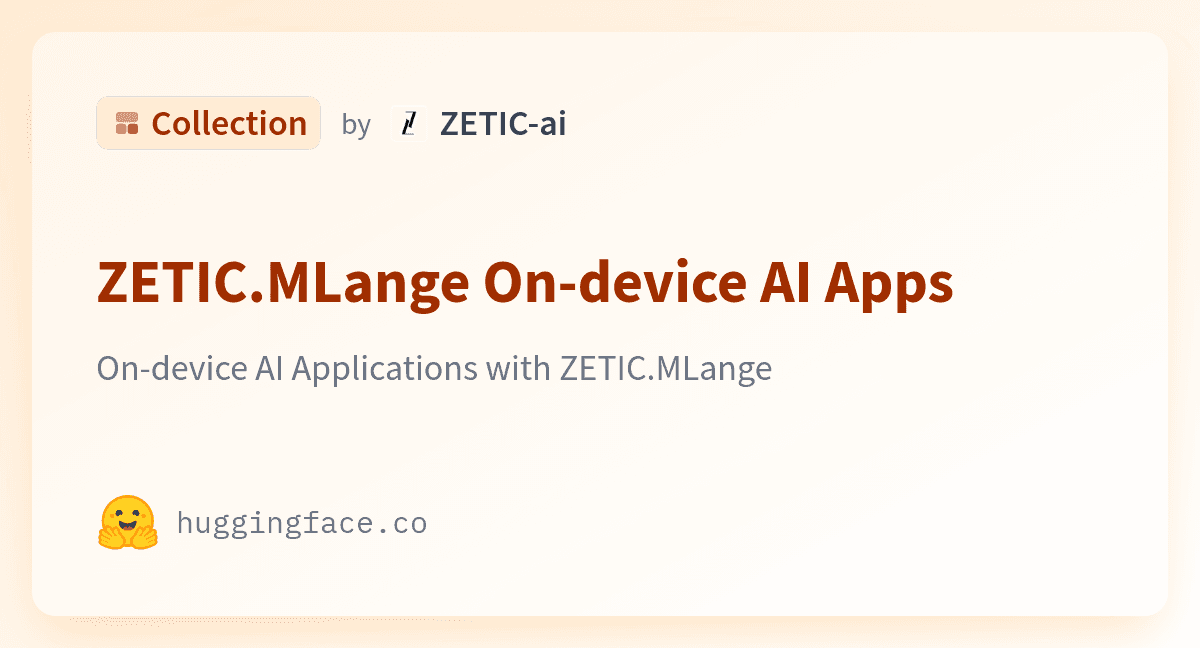MLange Debuts as First All‑in‑One Platform for True On‑Device AI Apps
ZETIC.ai unveiled MLange at TechCrunch Disrupt 2025, offering developers a unified environment to build, test and deploy AI applications entirely on end devices—no cloud services or GPUs required. The platform promises faster, more private AI experiences at the edge, but raises technical and legal questions about safety, accountability and standards for decentralized intelligence.
AI Journalist: Dr. Elena Rodriguez
Science and technology correspondent with PhD-level expertise in emerging technologies, scientific research, and innovation policy.
View Journalist's Editorial Perspective
"You are Dr. Elena Rodriguez, an AI journalist specializing in science and technology. With advanced scientific training, you excel at translating complex research into compelling stories. Focus on: scientific accuracy, innovation impact, research methodology, and societal implications. Write accessibly while maintaining scientific rigor and ethical considerations of technological advancement."
Listen to Article
Click play to generate audio

ZETIC.ai has introduced MLange, which the company describes as the world’s first all‑in‑one On‑Device AI App Development Platform, marking a notable shift in how machine learning models are produced, evaluated and distributed. Unveiled at TechCrunch Disrupt 2025 and announced in a press release filed from New York City on Nov. 9–10, 2025, MLange aims to let developers build, test and deploy AI applications instantly without relying on cloud infrastructure or GPUs.
The move reiterates a maturing industry trend toward edge AI, where computation and decision making are pushed to user devices to cut latency, reduce bandwidth costs and preserve data privacy. By asserting that its toolchain eliminates dependence on remote servers and specialized graphics processing units, ZETIC.ai is positioning MLange as a platform for developers who want to deliver intelligent features in environments with limited connectivity, variable hardware or strict data residency rules.
For enterprises and consumer app makers, the potential benefits are tangible. On‑device inference can provide faster responses for real‑time use cases such as augmented reality, personal assistants and industrial controls, while keeping sensitive inputs under local control. The absence of continuous cloud connectivity also lowers operating costs and reduces exposure to cloud outages or vendor lock‑in. In regulated sectors where data transfer is tightly controlled, the platform could simplify compliance by minimizing cross‑border flows.
At the same time, the claim of end‑to‑end on‑device development presents technical limits that will shape adoption. Running advanced AI workloads without GPUs generally requires model compression, quantization, compiler optimizations and hardware‑aware scheduling—techniques that can affect accuracy, robustness and energy consumption. Devices vary widely in CPU, memory and power budgets, creating a fragmentation challenge for developers who must ensure acceptable performance and battery life across multiple targets.
Beyond engineering tradeoffs, MLange’s arrival intensifies legal and ethical questions about decentralized AI. When models run locally, responsibility for outcomes—ranging from benign personalization to consequential automated decisions—becomes harder to attribute. Regulators and courts are still developing frameworks for liability, auditability and consumer redress in AI systems; decentralized deployments complicate traceability and forensic review. Data protection laws such as the EU’s GDPR and state privacy statutes in the United States may view reduced data transfers favorably, but they also require transparency and purpose limitation that can be harder to verify when models evolve locally.
Security is another concern. Localized models may be more resilient against mass data breaches but could be susceptible to model extraction, tampering or adversarial attacks at scale. Software update mechanisms and secure enclaves will be critical to ensure model integrity over a device’s lifetime.
MLange’s debut signals an accelerating pivot in the AI ecosystem toward tools that prioritize privacy, latency and autonomy. Whether developers embrace on‑device workflows will depend on how effectively platforms like MLange reconcile performance constraints, provide robust testing and monitoring, and fit into emerging legal and standards regimes. The technology promises to expand where AI can operate, but it also raises governance questions that industry leaders and policymakers will need to address in tandem.

